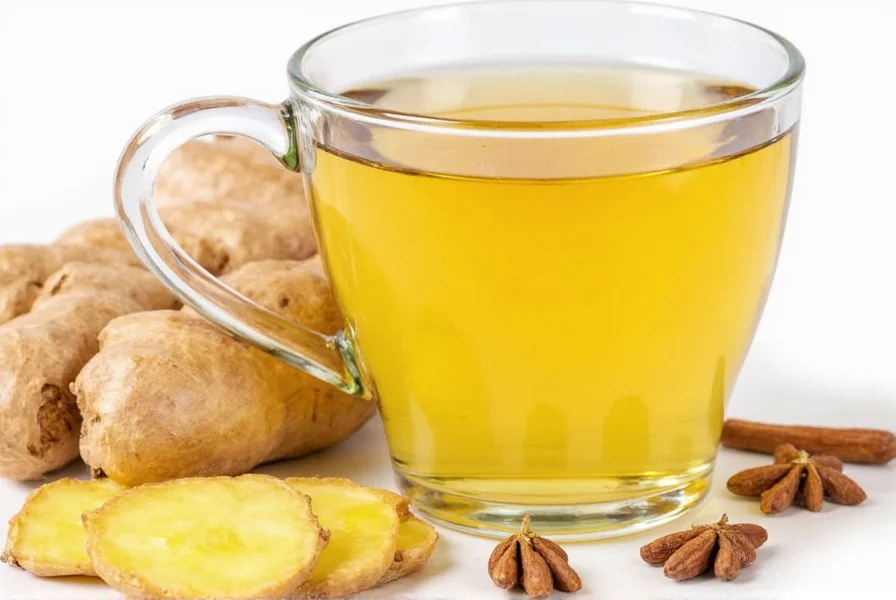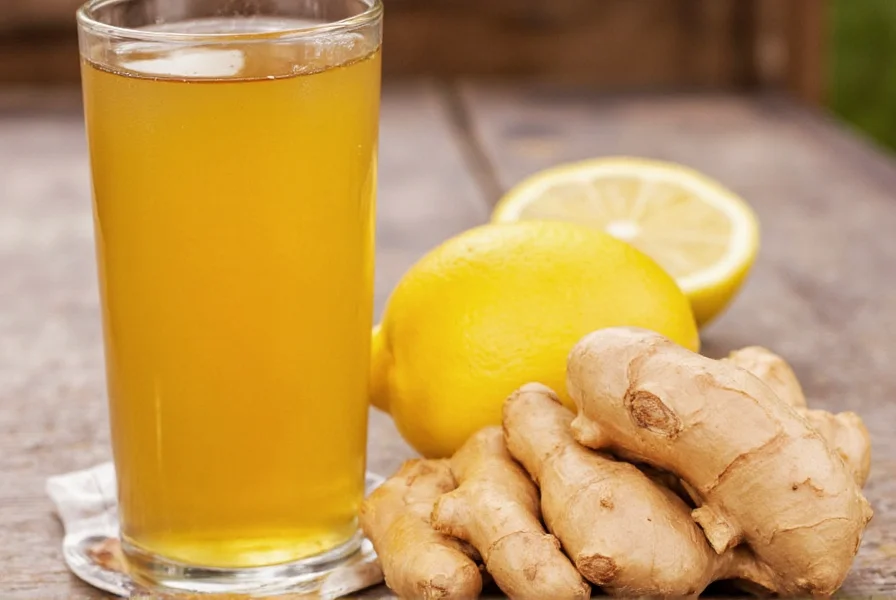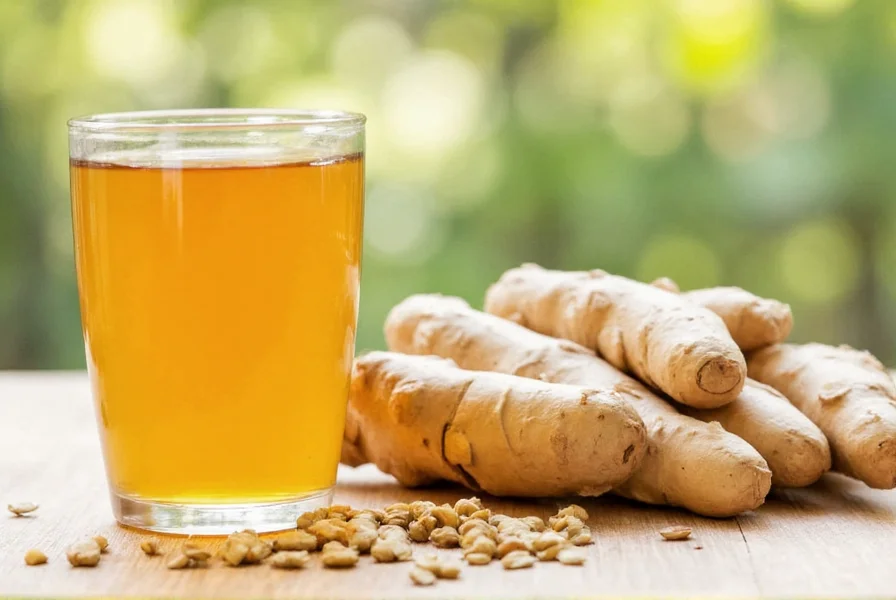When you brew a cup of organic ginger tea, you're tapping into centuries of traditional use backed by modern scientific research. Unlike conventional ginger tea, organic varieties come from ginger root cultivated through sustainable farming practices that prohibit synthetic chemicals. This distinction matters not just for environmental reasons, but potentially for the tea's purity and phytochemical profile.
What Makes Ginger Tea Truly Organic
The term "organic" isn't just a marketing label—it represents a rigorous certification process. For ginger tea to be labeled organic:
- The ginger must be grown on soil free from prohibited substances for at least three years prior to harvest
- Farmers cannot use synthetic pesticides, herbicides, or fertilizers
- Genetically modified organisms (GMOs) are strictly prohibited
- Processing facilities must maintain organic integrity through separate equipment or thorough cleaning protocols
- Certification by an accredited agency like USDA Organic, EU Organic, or Canada Organic is required
These standards ensure that when you choose certified organic ginger tea, you're getting a product free from potentially harmful chemical residues while supporting environmentally sustainable agriculture.

Nutritional Profile and Active Compounds
Ginger's therapeutic properties primarily come from gingerols and shogaols—potent bioactive compounds with antioxidant and anti-inflammatory effects. Research published in the Journal of Agricultural and Food Chemistry suggests organic cultivation methods may influence these compounds' concentration.
| Compound | Concentration in Organic Ginger | Primary Benefits |
|---|---|---|
| Gingerol | 5-8 mg/g | Anti-nausea, anti-inflammatory |
| Shogaol | 1-3 mg/g | Pain relief, antioxidant properties |
| Zingerone | 0.5-2 mg/g | Digestive support, antioxidant |
While research comparing organic versus conventional ginger directly is limited, studies indicate farming practices can affect phytochemical composition. A 2020 analysis in Frontiers in Plant Science found organic ginger samples contained slightly higher concentrations of certain beneficial compounds, though more research is needed to confirm these findings.
Evidence-Based Health Benefits of Organic Ginger Tea
When examining organic ginger tea benefits, it's important to distinguish between traditional uses and scientifically supported effects:
Digestive Support
Multiple clinical studies support ginger's role in digestive health. A systematic review in Nutrients (2021) concluded that ginger significantly accelerates gastric emptying and reduces symptoms of functional dyspepsia. Organic ginger tea may provide similar benefits without potential pesticide residues that could irritate sensitive digestive systems.
Nausea Relief
Research consistently shows ginger's effectiveness against various forms of nausea. A meta-analysis in Obstetrics & Gynecology found ginger reduced pregnancy-related nausea by 20-25% compared to placebo. Similar benefits have been documented for motion sickness and postoperative nausea. Organic ginger tea offers a natural option for nausea relief without artificial additives.
Anti-Inflammatory Properties
Gingerols inhibit inflammatory pathways in the body. A study in Arthritis demonstrated that ginger extract reduced pain and stiffness in osteoarthritis patients. While tea contains lower concentrations than extracts, regular consumption of organic ginger tea may contribute to an anti-inflammatory diet.
Choosing Quality Organic Ginger Tea
Not all products labeled "organic" offer equal quality. Consider these factors when selecting organic ginger tea:
- Certification verification: Look for official seals from recognized bodies like USDA Organic or EU Organic
- Ingredient transparency: Single-ingredient teas (just "organic ginger") typically offer more potent effects than blends
- Processing method: Freshly cut or freeze-dried ginger retains more active compounds than powdered forms
- Origin information: Reputable brands disclose where their ginger is grown (India, Nigeria, and China are major producers)
- Packaging: Light-proof, airtight containers preserve ginger's volatile compounds
Be cautious of products making medical claims like "cures arthritis" or "treats cancer"—these violate FDA regulations and indicate poor quality control.
Proper Preparation for Maximum Benefits
How you prepare organic ginger tea affects its potency. Research in Food Chemistry shows:
- Use water just below boiling (195-205°F) to preserve volatile compounds
- Steep fresh ginger slices for 10-15 minutes (powdered requires less time)
- Add lemon juice to increase extraction of gingerols
- Avoid excessive sugar which may counteract anti-inflammatory benefits
- For stronger effects, gently simmer fresh ginger for 20-30 minutes

Safety Considerations and Potential Interactions
While generally safe, organic ginger tea may not be appropriate for everyone:
- Dosage: Up to 4 grams of ginger daily is considered safe for most adults (about 2-3 cups of strong tea)
- Pregnancy: Consult your healthcare provider—while often recommended for morning sickness, high doses may pose risks
- Blood thinners: Ginger may enhance effects of medications like warfarin
- Gallstones: May increase bile production, potentially problematic for some individuals
- Surgery: Discontinue at least 2 weeks before scheduled procedures due to potential bleeding risk
As with any herbal product, discuss regular consumption of organic ginger tea with your healthcare provider if you have medical conditions or take prescription medications.
Integrating Organic Ginger Tea Into Your Wellness Routine
For those interested in incorporating organic ginger tea into their daily habits, consider these evidence-based approaches:
- Morning routine: Start your day with warm organic ginger tea to stimulate digestion
- Post-meal aid: Drink 15-30 minutes after meals if experiencing occasional indigestion
- Nausea prevention: Sip slowly at first sign of motion sickness or morning sickness
- Evening relaxation: Combine with chamomile for a soothing, caffeine-free evening beverage
Remember that organic ginger tea works best as part of a balanced diet and healthy lifestyle—not as a standalone solution for health concerns.
Frequently Asked Questions
How much organic ginger tea should I drink daily for health benefits?
Most research suggests 1-3 cups of properly brewed organic ginger tea daily provides potential benefits without adverse effects. Each cup should contain 1-2 grams of fresh ginger (about 1/4 to 1/2 inch slice). Consuming more than 4 grams of ginger daily may cause digestive discomfort in some individuals. Consistency matters more than quantity—regular moderate consumption yields better results than occasional large doses.
Can organic ginger tea help with weight loss?
While organic ginger tea isn't a weight loss solution, research suggests it may support metabolic health. A study in Metabolism found ginger consumption increased thermogenesis and reduced feelings of hunger. As a calorie-free beverage that may improve digestion, it can be a helpful component of a weight management plan when combined with proper diet and exercise, but it won't produce significant weight loss on its own.
Is organic ginger tea safe for children?
For children over 2 years, small amounts of diluted organic ginger tea are generally considered safe for occasional use, such as for mild nausea. The American Academy of Pediatrics suggests no more than 1 gram of ginger daily for children (approximately 1/4 cup of weak tea). Always consult a pediatrician before giving ginger tea to children, especially those under 2, as their digestive systems are still developing. Never give ginger tea to infants.
How does organic ginger tea compare to ginger supplements?
Organic ginger tea typically contains lower concentrations of active compounds than standardized supplements, but offers a more balanced profile of ginger's natural compounds. Supplements often provide 250-500mg of concentrated ginger extract per dose, while a cup of strong ginger tea contains approximately 100-200mg of ginger compounds. Tea provides gentler, more gradual absorption and includes additional compounds that may enhance bioavailability. Supplements offer precise dosing for therapeutic purposes, while tea serves better for regular maintenance and mild symptom relief.











 浙公网安备
33010002000092号
浙公网安备
33010002000092号 浙B2-20120091-4
浙B2-20120091-4